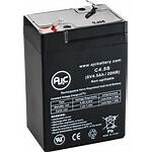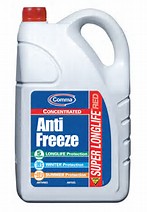The five transfer stations in the District accept clean wood: Cavendish, Ludlow, Rockingham, Springfield, and Weathersfield.
Uncategorized
Cell Phones
Cell phones can be reused or recycled through national programs. Several programs give a percentage of proceeds to charities.

- Collective Good~ www.collectivegood.com, (770) 856-9021
- Wireless Foundation ~ www.wirelessfoundation.org
- Keep America Green ~ www.ewasteaware.org
- Verizon HopeLine ~ Verizon Wireless retail stores, 1-800-426-2790
They may also be recycled, separate from the battery, in any Call2Recycle box. See Batteries (Household) above.
Catalogs
See Magazines.
Batteries (Household)

ALL batteries (AA, AAA, C, D, 9v, hearing aid, coin cell, rechargeables) are recyclable in Vermont through Call2Recycle and we strongly urge you to take your batteries to your local transfer station for proper recycling. Click here for information about what happens to the batteries after you take them to the transfer station or participating town office.
Asbestos
Removal of asbestos in any form, friable or non-friable may cause respiratory damage if inhaled. Friable asbestos (soft and fibrous such as pipe insulation) is the most hazardous. Non-friable asbestos (often found in siding and roof shingles and floor tiles of certain vintage) is less likely to break into airborne particles and therefore is less hazardous. If you have asbestos wastes, look in the yellow pages for “Asbestos Abatement & Removal” and “Asbestos Consulting & Testing.” Or call the Vermont Agency of Natural Resources at 802-241-3800 for further information.
Some forms of asbestos, such as tiles and roofing, do not need to be removed by a professional asbestos removal company, but disposal of these materials is very strict. Asbestos tiles, siding and roofing must be removed damp, wrapped securely in plastic and taken directly to a landfill or transfer station which accepts the materials.
Appliances

Clothes dryers, dishwashers, freezers, refrigerators, stoves, washing machines, water heaters
Non-profit COVER Home Repair in White River Junction accepts donations of clean, working, large appliances as space allows for redistribution to needy members of the community. Please call ahead. LISTEN stores accept some small appliances in good working order. Community listservs and Front Porch Forum are other options for passing along usable items.
If no longer serviceable, appliances may be brought to your local transfer station. Although appliances are sometimes taken at no charge, there is a fee for the removal of CFC’s (Freon) from refrigerators, freezers, dehumidifiers, and A/C units.
Antifreeze/Coolant

Coolant from vehicles (antifreeze) is considered hazardous waste and should be taken to a hazardous waste collection. Some local service stations accept antifreeze. Give yours a call.
Animals
When a pet or farm animal dies there are several ways legally to handle it. According to the Vermont Department of Health you may bury the animal on your property as long as you take some precautions. The animal should be buried at least 100 feet from a water source and should be at least 2 feet underground and covered with 10 pounds of lime to discourage other animals from digging it up. Many veterinarians also provide a service for the disposal of animals. Rendering companies will sometimes accept large animals. Your local game warden will pick up a deer or moose.
Ammunition
Ammunition cannot be brought to a hazardous waste collection. If the ammo is in useable condition, your police department or a gun shop may be able to use it. If the ammo is old, wet, or corroded, ask your police department about proper disposal.
Agricultural Plastic
(Bale wrap, sheet plastic mulch, etc.)
Ag plastics should be managed as trash. Burning or burying agricultural plastics or other types of farm rubbish is strictly prohibited. Unfortunately, agricultural plastic is difficult to recycle and at this time there are no local recycling outlets.